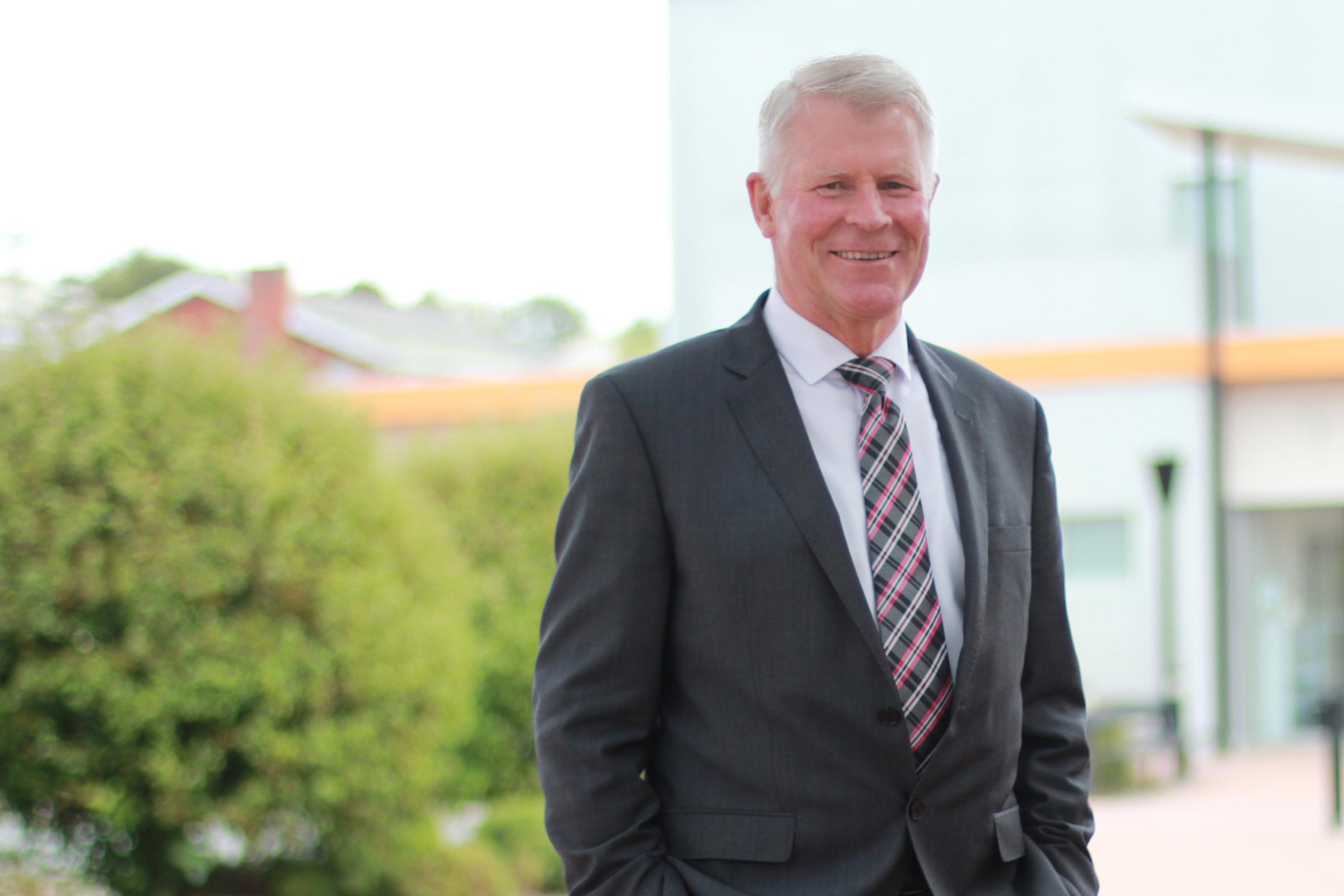From the Principal

Warning – A bit of a long read but I think it addresses an important question about life.
You’ll see that even the fact I’m writing about this today is a result of part of the answer to the question I am posing. A parent sent me a email to a much longer article which I have tried really hard to condense without losing the key focus. I hope you see what I mean when you get to the end. Please try!
As our Year 12 students finish up at LCS, the end of one part their journey and the beginning of another, a question they often ask themselves, or more to the point, a question that is asked of them is; “What are your plans?” or “What do you want to do with your life?”
These are well intentioned questions but finding the answer is not often, if ever, easy to find. The careers advise might go something like this.
Student - "Could you guys help me?"
Adviser - "Sure! We have a whole building full of helpful people. We'd love to help you. What's the problem?"
Student - "The question is…What do I want to do with my life?"
Advisor - "Right! What do you want to do with your life?"
Student - "That's the question."
Advisor - "Right! That's the question, so what's the answer?"
Student - "No, no, no! That's the question."
Advisor - "Here's how it works. You tell us what you want to do, and we help you go get it."
Student - "That's easy. I know how to get stuff. It's knowing what you want that's really hard."
Advisor - "Oh! You're supposed to know. You go figure that out. Then come back and give us a call."
Student - "That's no help at all!"
And there can be well intentioned Christian folk who would ask, “Have you prayed about it?” That is not to say that praying to God with this request is not a good thing to do, it is! But hanging our hopes on a direct answer from God as the only way to have certainty, would leave most of us clueless about what to do with our life.
I think that part, if not most, of the answer comes from the pre-fall idea of work. It’s a concept called Designing your Life. And the way to find this is not related to ATAR scores or being ‘smart’. It’s about being clear. Let's get really clear about something. Being really smart has nothing to do with being really clear. Unless there is clarity, people can get stuck. What are they stuck on? There are a whole bunch of reasons, but they get stuck on some things in particular, what we could call dysfunctional beliefs, ideas that are popular but not particularly helpful or generative and in many cases just flat untrue.
Take the idea of choosing a particular course of subjects that will project the student into a particular career trajectory. Over 80 percent of college graduates are working outside their field of study within 5 to 10 years of graduating. It would interesting to survey our school community to see how this correlates to their reality.
Another way of searching for the answer is to ask, “What’s your passion?” Eight out of 10 people answer, "What is your passion?" with either, "I don't know, I'm hoping to find one," or "I have a bunch. Which one did you want to hear about first?" What's wrong with those two kinds of people? Nothing! They're completely normal human beings. Asking "What is your passion?" believes everybody has a passion, it believes everybody will know it early in life, it believes everybody will discover it before they've even begun to do it, it believes the world will offer you a chance to go out and bring that passion into reality, and it believes passion will make a great living while you become skinny and sexy at the same time and popular, with lots of likes. All five of those are false. The overwhelming majority of people who find a truly deep passion in life earn their way to it by living into it. Passion is the outcome, not the starting place.
Because of these dysfunctional beliefs it's time to think differently. It's time to think like a designer. It is a way of thinking that is best understood by contrasting it with other kinds of thinking. For instance, there is engineering thinking. Engineers are great because they solve their way forward. They can actually get a solution in ways that stay stable and don't change with time. A bridge does not wake up on Friday morning going, "I'm just over it. I'm over being over. I'm stressed by stress-bearing. I don't think I want to be a bridge anymore. I think it is fall-down Friday." If bridges could wake up and declare fall-down Friday, civil engineering would be a much more intriguing career, but they don't, thankfully. Engineers can solve their way forward.
Business people have a way of thinking. In business, you're never right. You're never done. You can make more money. You can have the customer love you more. You can defend against your competitor more, but you're not done. You're optimizing. If you go to business school, you optimize very quantitatively with great big spreadsheets with fancy words and lots of acronyms. It's a way of thinking. It's very effective for certain kinds of things.
At the university, there is research thinking. Using a process for coming up with a new form of rigorous thought to address situations in the humanities and the sciences, but there are classes of problems for which none of these tools are terribly effective. You can't apply a certain set of solutions into a different context and think it's going to work. It just doesn't work. There are fundamentally human problems that you have to live your way into, and they're always about the future, which, of course, you can't analyse because it's not here yet. For that, what do you do?
This is where designing your life comes in to help answer our initial question. In a sense it is a trial and error thing of doing life, measured against principles that God has revealed in His Word as right. It has also been said that design thinking is human-centred thinking. But before we reject this idea, it’s good to be clear that human centred design is not about making stuff that humans use, even though there is great value in the collaborating and innovating that this brings.
In the context of answering the question about “What should I do with my life?” we need to start with empathy. How Christian is that? The very first thing you do is have no point of view at all and go out and try to deeply listen to what's going on in this situation before you define what problem you're working on. You problem-find before you problem-solve.
Then, you have a bunch of ideas, and before you decide to even implement one of those ideas, you go and test it. You try it on the world, called prototyping. You go and do stuff. Right? Then, you make a number of tests before you actually release something. It's very true in any product design, which is what this was conceived for, but it's certainly true in lives, that step zero is terribly important. Step zero is to accept. This is design thinking and it can help answer our question.
You have to start with reality. God always does. The only place you can encounter the presence of God is in reality. I think God starts with, "Where are we now?” He said to Zacchaeus, “Come down and let's have lunch" not "What are you doing in the tree?" The mindset is really pretty simple. We begin with curiosity, and if we believe God made a good creation and God is going somewhere, although exactly where we don't know, then we will want to get there. "Where is it?" All Christians are intrinsically curious. Right? If they are, they're going to be radical collaborators. That doesn't mean collaborating with radicals. It means radically open to and listening to every voice.
And who do we listen to? Jesus listened to the voice of the oppressed which was clearly Jesus’ preferred constituency (the widowed, the poor, the orphan, the ill, and the prisoner). If you haven't heard from those people, you have not heard from God, because God is especially with those people. In every circumstance, there are the oppressed. There are the voiceless. Collaborate with them, too. If you do, you will hear things you didn't know, and it will cause you to think differently and reframe things. Jesus is the ultimate re-framer. "You have heard it said, but I say unto you…" He says that all of the time.
So it’s clear that we are in a process. God is in the business of doing things. Isaiah prophesied in Isaiah 43:19, “See, I am doing a new thing!” It turns out what we do is live into this thing. We're doing people. Designers are doing people. Christians are doing people. Why? Because if you get the human thing right, you can't go wrong, because that's what God had in mind all along. That sort of sets up the idea of what life design i
